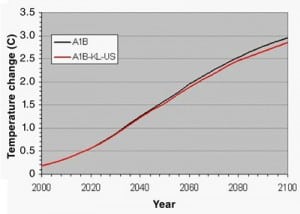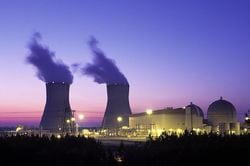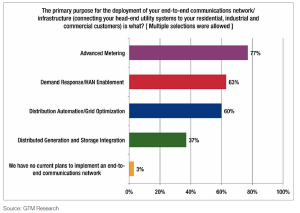Commentary
-
Commentary
Bill Gates and the Energy Research Dilemma
There is an idea that has been around for a long time, at least since the fall of 1973: All that stands between the U.S. and an abundant energy future is a lack of spending on research and development. It is as though the Knights Templar could find the Holy Grail, if only the Pope would commit just a few more resources to the hunt.
-
Commentary
Texas to EPA: Follow the Law
The EPA, determined to regulate U.S. carbon dioxide emissions under the Clean Air Act, found that the low limits set by the Act for any “regulated pollutant” led to, in the EPA’s words, “absurd” results. Undeterred, the EPA developed the “Tailoring Rule,” which reinterprets the Act to apply to only larger emissions sources. Texas eloquently rejected the EPA’s legal gymnastics.
-
Commentary
Nuclear Investment Means Jobs and Energy Security
A proven solution for immediate and long-term job creation came from President Barack Obama and his administration earlier this year: investment in U.S. nuclear energy. Bulldozers in Georgia are already on the move and making preparations for expansion of a nuclear plant that has achieved several approvals, and long-awaited jobs in the skilled labor sector could materialize there within months.
-
Commentary
Kerry-Lieberman Trade in the Trivial
The recently unveiled Kerry-Lieberman global climate warming bill is an exercise in triviality. By century’s end, reducing U.S. greenhouse gas emissions by 83% will only result in global temperatures being one-fifth of one degree Fahrenheit less than they would otherwise be. That is a scientifically meaningless reduction.
-
Commentary
Cape Wind: Never Again
Cape Wind was a momentous clean energy victory, but if climate change advocates truly take the immense scale of the energy and climate challenge seriously, we must ensure that this is the last time that a new zero-carbon energy source faces such prolonged NIMBY opposition
-
Commentary
Econ Boffins: Scrap CO2 Emissions Reductions
A group of 14 international academics from a variety of fields, under the auspices of the London School of Economics and Politics, have produced a paper calling for a new approach to the failed Kyoto Protocol model for dealing with global warming, scrapping the notion of emissions reductions.
-
Commentary
WTE: Next-Generation Sustainable Energy
It is clear that energy use will expand in the future as our population and society’s standard of living increase. Meanwhile, the push toward a sustainable lifestyle requires that all resources be utilized efficiently and sparingly. The National Academy of Sciences has identified paradigm shifts from current processes to an ideal vision centered on renewable energy and an atom economy—defined as maximum incorporation of starting materials into final products. These seemingly disparate paths converge if one considers energy production from municipal solid waste (MSW).
-
Commentary
The Politics and Perils of Pork
An "emergency war supplemental" appropriation bill that Congress was considering at this writing has implications for the power industry: The measure includes $9 billion each for new loan guarantees for nuclear power and renewable energy projects.
-
Commentary
Power Industry Flip-Flops on Support of Carbon Controls
I recently had the privilege of moderating the Power Industry Executive Roundtable, part of the annual ELECTRIC POWER Conference & Exhibition opening ceremonies. Usually, the power industry executives have predictable views of important issues, but not this year.
-
Commentary
The Second Wave of the Smart Grid
Now that U.S. utilities have taken federal stimulus funds and seamlessly built out two-way advanced metering infrastructure (AMI) connecting utility control centers and end users (ok, not completely, but let’s assume that the “stall-ulus” becomes a true stimulus), the question becomes, what’s next? At the moment, this new “comm layer” or “platform” has utilities planning in two directions: upstream and downstream from the smart meters.



